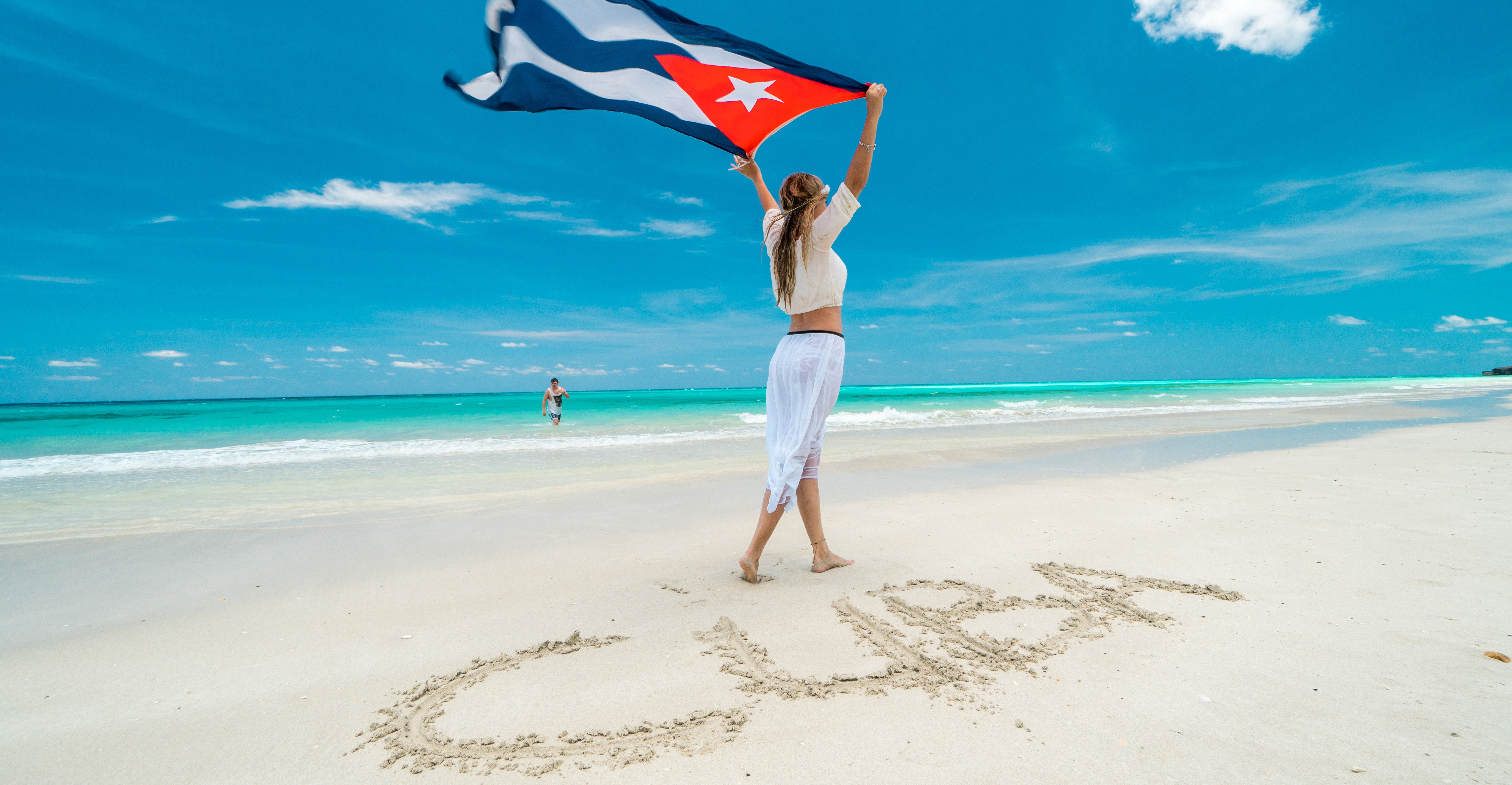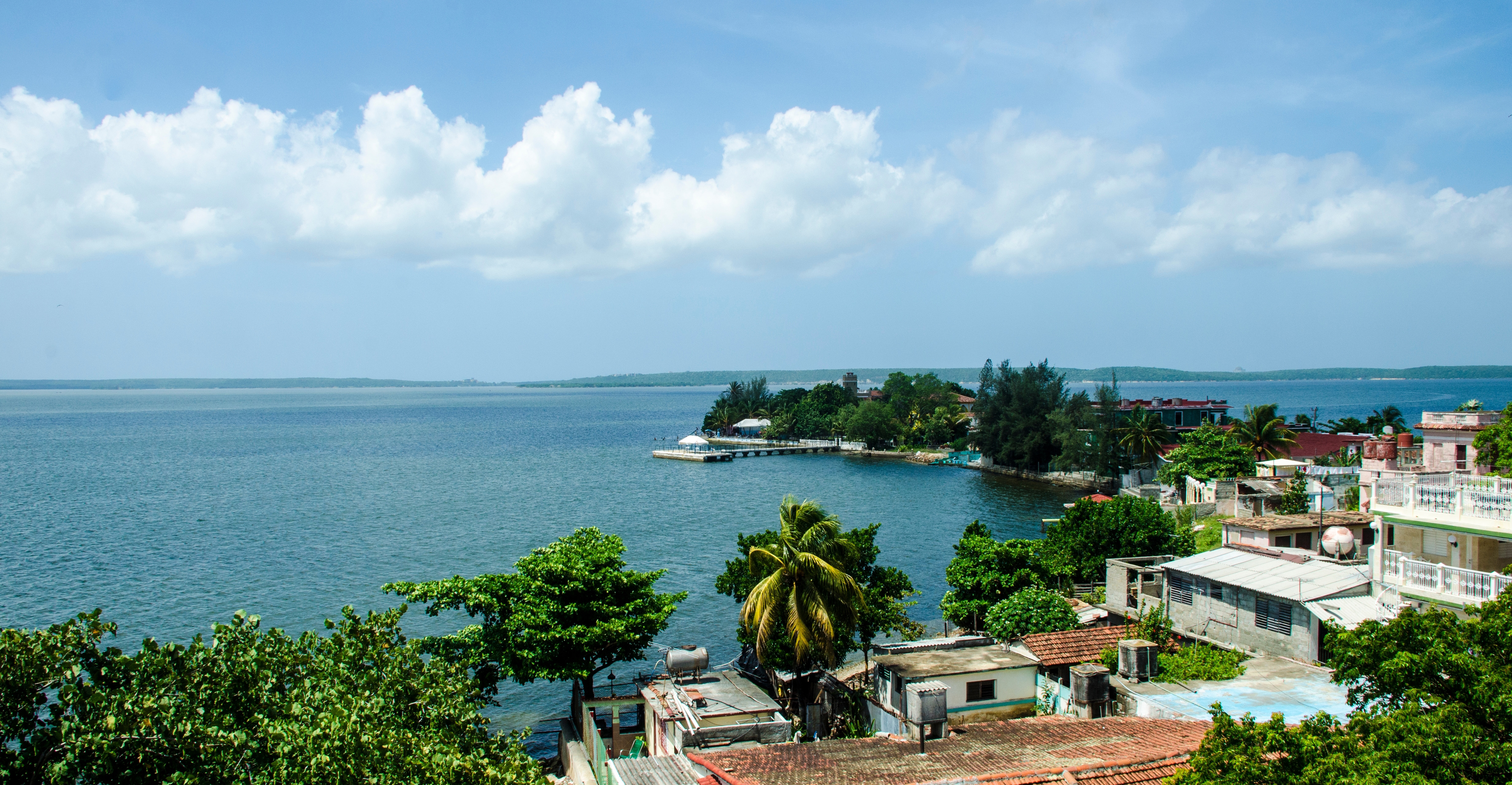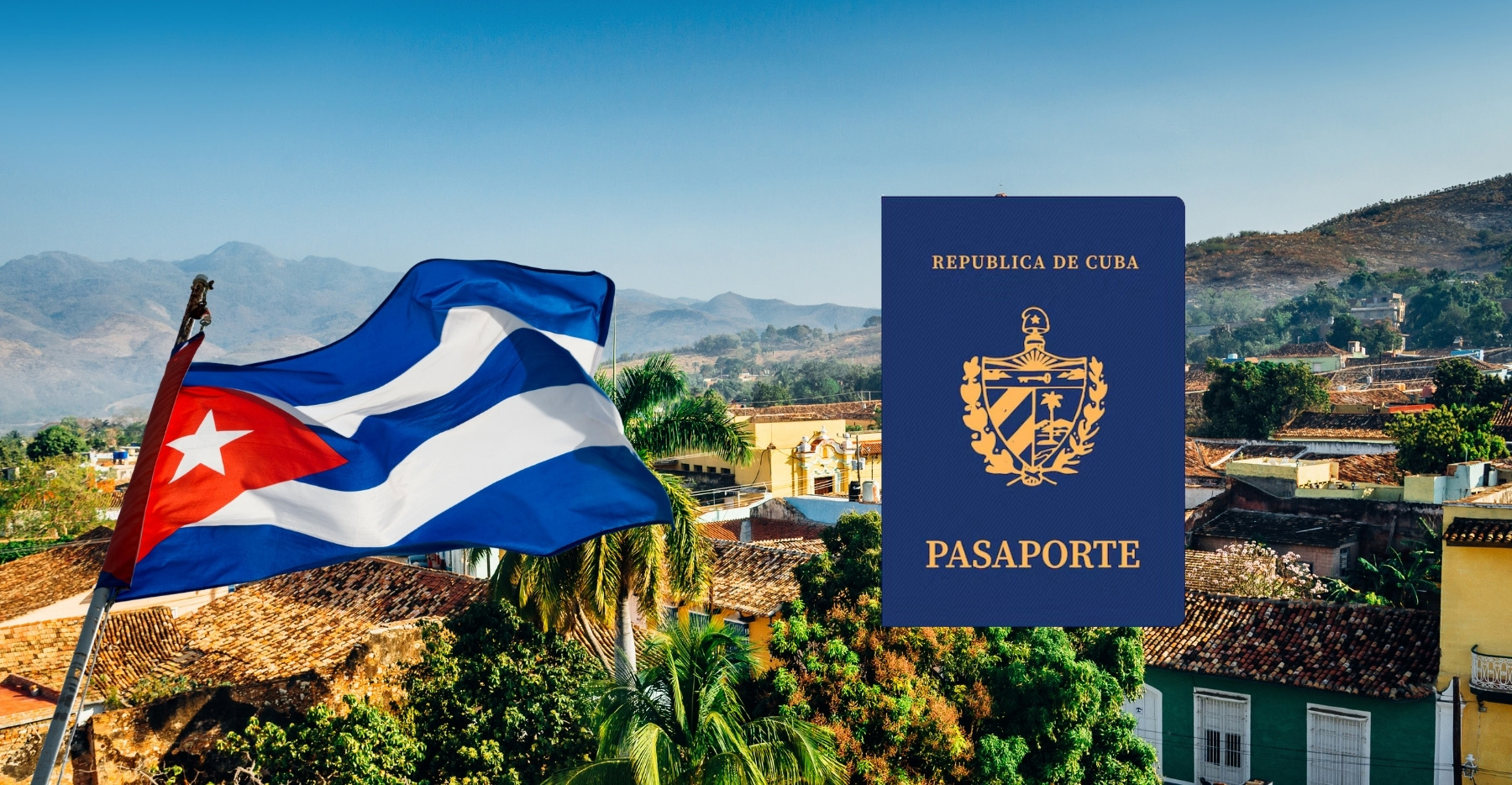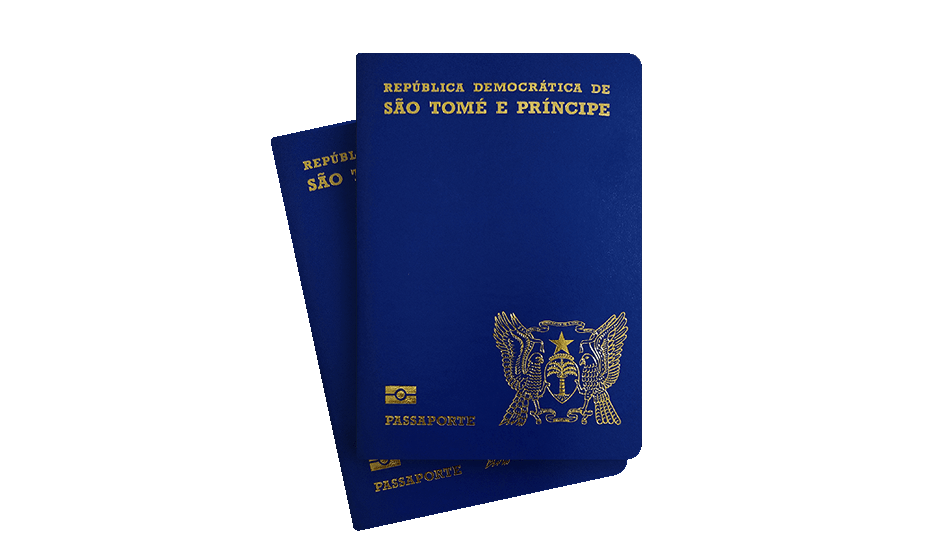Here’s what you need to know about Cuban citizenship to get started
Cuban citizenship is available as a second passport — the new law does not require foreigners to renounce their original passport upon naturalization. However, Cubans who move abroad and do not inform the authorities within 3 years that they wish to maintain their status will lose it.
Currently, there are four ways to obtain a Cuban passport: by birth, origin, naturalization (regular, simplified, or individual), or restoration. Typically, to obtain citizenship, you must live in Cuba for at least five years; however, relatives of Cubans (parents and spouses) can apply for citizenship after only two years. The procedure is generally long and complicated due to bureaucracy. You need to collect a large number of documents, translate and certify some of them, and have the rest notarized. Then, you must wait 6 months for a decision.
Cuban passports are rarely chosen for the sake of freedom of travel because they allow visa-free entry to only 76 countries. Obtaining Cuban citizenship is mainly a political step. Therefore, those who want freedom of movement and to expand their rights worldwide consider acquiring a second passport in another Latin American country.
- Easy to obtain
- Dual citizenship is allowed
- Freedom to travel around the world
Who can apply for Cuban citizenship?
In 2024, the Cuban government adopted a new citizenship law. The law is set to take effect six months after its publication in the Official Gazette of the Ministry of Justice (Gaceta Oficial). To date, the law has not yet been made public. According to the Constitution of Cuba, citizenship can be obtained by birth, descent, or naturalization.
Cuban citizenship is granted by birth to children born on Cuban territory (jus soli). The only exceptions are for children whose mother or father is in Cuba on a diplomatic mission, as part of international organizations, or carrying out other government assignments. A child does not necessarily need to have citizen parents to become Cuban; it is enough that the parents lived in Cuba with a residence permit for at least six months before giving birth.
Cuba’s legislation is not as lenient as that of other Latin American countries, such as Brazil and Argentina, where children become citizens regardless of their parents’ status and where mothers and fathers can obtain passports in a simplified manner.

Cuban citizenship by origin is granted to a child born abroad to a Cuban family. Though, to qualify, the parents or one of the grandparents must have been born in Cuba. If such a child is not registered with a Cuban registry office, they will not obtain citizenship status.
There are three types of naturalization in Cuba: standard, simplified, and individual. Typically, in order to obtain a passport, one must live in the country as a permanent resident for at least 5 years. Simplified naturalization is possible for parents and spouses of Cubans, who have the right to obtain citizenship after two years. A mandatory requirement is passing a citizenship exam.
Foreigners who live in Cuba and are of particular political, economic, or social interest to the authorities may be issued a passport at the president’s discretion. Ernesto Che Guevara received Cuban citizenship for special services under this policy.
Another way is through restoration of citizenship. A person can request a passport if they previously had Cuban citizenship but lost their status. You can apply if at least five years have passed since the deprivation or loss of citizenship. There are no legal requirements regarding language proficiency or passing any exams.
How to obtain citizenship through naturalization
The standard naturalization process for obtaining Cuban citizenship has seven stages:
1. Selecting the grounds for obtaining a residence permit. Those who plan to live in Cuba long-term must obtain a long-term visa (type D1–D10). You can immigrate for work, study, family ties, or medical treatment. You may also immigrate as an artist, religious person, athlete, journalist, asylum seeker, refugee, or businessman. Note that if you arrive with a regular tourist visa or under a visa-free regime, you will not be able to request a residence permit.
2. Opening a visa. A visa is issued at a Cuban consulate or embassy. The required documents vary depending on the type of visa, but you must always provide a passport and a 2.5 x 2.5 cm photograph (you may need to provide several). You will also need to fill out an application. A visa costs USD 55 and is issued for 30 days.
3. Registering for a residence permit. Registering for a residence permit. Depending on your situation, you can submit an application for a residence permit in person, or an authorized person or government agency can submit it on your behalf. For example, if you are moving to Cuba to open a branch of your company, the application is sent to the Directorate for Identification, Immigration and Foreigners (DIIE) by the President of the Chamber of Commerce.
This process must be completed at least 20 days before the visa expires. You will need to provide:
- a passport;
- 3 photos measuring 2.5 x 2.5 cm;
- a copy of the visa;
- confirmation of the intended purpose of the move;
- a receipt for payment of the state fee (about USD 10 USD).
The validity period of the residence permit depends on the grounds for moving. For example, if you came for work, you can get a residence card valid for 5 years, provided that your contract is also valid for an equal amount of time.
4. Requesting permanent residence. There is no legally established deadline for submitting the request. Cuban relatives (parents, children, and spouses) can apply, while other foreigners can only do so after receiving special approval from the DIIE. Applications can be submitted to either the immigration department or the consulate in Cuba.
Applicants undergo a medical examination, including a chest X-ray and serological and HIV/AIDS tests. You must also confirm your financial solvency. The exact amount is not specified, but you can use the minimum salary as a reference: CUP 2,100 per month (approximately USD 88).
Permanent residence permit is issued after 3-6 months and costs USD 210 (USD 55 if you apply at the embassy). You must also pay approximately USD 10 for a resident card.
5. Collecting the documents. The following documents must be attached to the citizenship application:
- A permanent residence card.
- Certificates proving you have no criminal record in Cuba and your country of origin (or previous place of residence).
- A lease agreement or certificate of ownership.
You will also need two letters of recommendation from Cubans who have citizenship by birth or origin, have lived in Cuba for at least 5 years, and have known you for at least 3 years.
Documents in languages other than Spanish and issued abroad must be translated and notarized. Cuban applications, as well as lease agreements or certificates of housing ownership, must be certified by a notary;

6. Obtaining citizenship. Submit the application to the Ministry of Internal Affairs for a review period of about six months. There is no fee to apply. Before submitting the application, all applicants must pass a citizenship test demonstrating their knowledge of the rights and responsibilities of citizenship.
After submitting the documents, the applicant may be invited to an interview. Questions may relate to marital status, social integration, housing, and earnings.
The decision will be sent by mail or email, depending on what you indicated on the application form. The citizenship certificate is presented at a ceremony where the new Cuban citizen takes an oath and signs the corresponding document.
7. Obtaining an identity card (ID) and passport. Obtaining an identity card (ID) and passport. Both documents are issued at the DIIE. First, you need to obtain an ID card, which costs about USD 1. It is issued to all citizens over the age of 16. To obtain an ID card, you only need to provide a citizenship certificate. The ID card is produced within 15 days. To obtain a passport, you need an ID card and a receipt showing payment of the USD 104 state fee. The passport is ready within 10 working days.
Obtaining Cuban citizenship through marital status
This is a simplified naturalization process. The process differs from the standard procedure in three ways:
- You must live in Cuba for 2 years before applying for a passport, not 5 years.
- You can obtain permanent residence without special approval from the authorities.
- You must provide a marriage certificate.
According to the former citizenship law, there is no residency requirement if the couple has children together.
A spouse of a Cuban citizen is not exempt from taking the citizenship test. The application review period is the same as for standard naturalization: 6 months.

Costs
In terms of administrative fees, the immigrant will face the following payments during the naturalization process:
| Expense item | Approximate cost, $ |
|---|---|
| Opening a visa | 10 |
| Obtaining a permanent residence permit and the card | 65–220 |
| Obtaining an internal passport | 1 |
| Obtaining an international passport | 104 |
In total, you will need to budget about USD 235–390. However, also consider the cost of living in Cuba for five years. One person will spend approximately USD 41,200 on living expenses and an additional USD 25,200 to rent a one-room apartment. For a family of four, this amounts to USD 140,000 for living expenses and USD 45,000 for a three-room apartment. Meanwhile, the average salary in Cuba is only USD 271.
What are the benefits of being a Cuban citizen?
A Cuban passport is not one of the strongest in the world. In the iWorld passport rating system, it ranks 73rd. With Cuban citizenship, you can travel to 76 countries without a visa or with simplified visa applications, mainly in Asia and Africa.
Advantages of the passport include the right to live in Cuba indefinitely, work without restrictions, do business, open bank accounts, and receive social assistance, benefits, and subsidies. After obtaining a passport, you also have the right to buy real estate in any city in the country. However, this is only possible if you live in Cuba for most of the year. In fact, foreigners can only purchase apartments or houses in areas permitted by the authorities.

Cubans also have the right to simplified Spanish citizenship — for this, you need to live in Spain for at least two years. However, Argentines and Brazilians have the same opportunity, and it is much easier to get a passport in these countries than in Cuba.
Previously, US legislation provided for a program with the unofficial name “wet feet, dry feet.” Cubans who reached U.S. territory could stay in the country and receive a residence permit. Cuban citizens who were intercepted at sea were deported. However, in 2017, Barack Obama ended this policy, which had been in effect for about 20 years.
Challenges and pitfalls
Electronic services are not available in Cuba. To obtain a visa, temporary or permanent residence permit, or citizenship, you must personally contact government agencies. It is impossible to schedule an appointment in advance, so there is always a risk that you will spend the entire day at the institution without achieving your goal. The list of documents required for citizenship is extensive, and some documents must be notarized or legally certified. Such bureaucracy can be confusing and lead to a refused application.
Cuban citizens who received citizenship by naturalization can lose the status if they live abroad. To retain citizenship, you must contact the consulate immediately after emigration to confirm your intention to keep your Cuban passport.
If you want a second passport as a “backup plan,” we recommend considering the Vanuatu investment program. You do not need to live there to retain citizenship, and the status is issued in just two months.
During the consultation, will select an immigration program according to your goals and capabilities. Leave a request for the consultation via the feedback form.

















